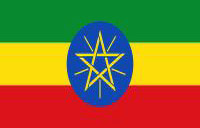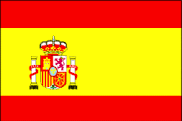
Peter Handke
The Nobel Prize in Literature 2019
Austrian-born writer, playwright, novelist, poet, essayist and screenwriter. Prize awarded "for an influential work that with linguistic ingenuity has explored the periphery and the specificity of human experience."
" … take advantage of your days of good health.
Biography
Bio by Lalitha M. Kutty, M.S. [Library & Information Science], M.A. [English Literature]
Austrian-born writer, playwright, novelist, poet, essayist and screenwriter, Peter Handke, was awarded the 2019 Nobel Prize in Literature "for an influential work that with linguistic ingenuity has explored the periphery and the specificity of human experience." Mr. Handke is the second Austrian Nobel Laureate in Literature, after Elfriede Jelinek who was awarded the prize in 2004. Considered a stylistic innovator and a chronicler of psychological alienation, he rose to prominence as a major figure in postmodern German literature during the 1970s and 1980s. Professor Anders Olsson, Nobel Committee Chairman, described Mr. Handke's style of writing as "suffused with a strong spirit of discovery, a desire to write the world fresh. In his debut year, 1966, he attacked the literary world for its short- comings in describing reality, but over fifty years later, with about 80 works behind him – including films and about a score of plays – it is evident not only that he has realized his dream of a new prose, but also how his writing has become influential for several generations of writers in post-war Europe."
Mr. Handke’s debut novel Die Hornissen (The Hornets) was published in 1966. His most important works include Publikumsbeschimpfung (Offending the Audience published in 1966), Die Angst des Tormanns beim Elfmeter (The Goalie's Anxiety at the Penalty Kick published in 1970), Die linkshändige Frau (The Left-Handed Woman published in 1976), and Die morawische Nacht (The Moravian Nights published in 2008). In 1972 he wrote Wunschloses Unglück (A Sorrow Beyond Dreams), a semi-autobiographical novella about his relationship with his mother and her suicide in 1971. In collaboration with film director Wim Wenders, he wrote the script for the Bafta-nominated 1987 film Wings of Desire. The novel The Goalie’s Anxiety at the Penalty Kick was adapted for Wenders' second feature film.
There has been some criticism for awarding the Nobel Prize in Literature to Mr. Handke because of his views on the breakup of Yugoslavia and Yugoslav wars, his support of the late Slobodan Milosevic and of his denial of the Bosnian genocide. In a statement from its president, Jennifer Egan, PEN America said it was "dumbfounded by the selection of a writer who has used his public voice to undercut historical truth." After widespread criticism, he turned down a nomination for the Heinrich Heine prize before politicians could withdraw it over his political views. Mr. Handke won the 2014 International Ibsen award which was met by protests in Oslo. In 1973, he won the Georg Büchner Prize, the most important literary prize for German-language literature. However, in 1999, as a sign of protest against the NATO bombing of Yugoslavia, he returned the prize money to the German Academy for Language and Literature.
Mr. Handke was born on December 6, 1942, in Griffen, Carinthia, Austria to Bruno and Maria Handke. In 1966 he married Libgart Schwarz. From 1961-65 he attended a Jesuit seminary and University of Graz. He was co-founder of Verlag der Autoren, an author-owned publishing house focusing on texts related to the performing arts. Currently he resides in Clamart, France.
Mr. Handke has received the following awards and honors:
- Georg Büchner Prize, 1973
- Schiller Prize, 1972
- Büchner Prize, 1973
- Kafka Prize, 1979
- Salzburg Literature Prize, 1986
- Vilenica International Literary Prize, 1987
- Grillparzer Prize, 1991
- American Award, 2002
- Heinrich Heine Prize, 2006
- Thomas-Mann-Preis, 2008
- Franz Kafka Prize 2009
- Mulheimer Dramatikerpreis, 2012
- International Ibsen Award, 2014
- Nestroy Theatre Prize for Lifetime Achievement, 2018
- Die Hornissen (The Hornets) – 1966
- Publikumsbeschimpfung, (Offending the Audience) – 1966
- Selbstbezichtigung, (Self-Accusation) - 1966
- Der Hausierer (The Peddler) – 1967
- Kaspar - 1968
- Die Angst des Tormanns beim Elfmeter (The Goalie’s Anxiety at the Penalty Kick) – 1970
- Der Ritt über den Bodensee (The Ride across Lake Constance) - 1971
- Der kurze Brief zum langen Abschied (Short Letter, Long Farewell) - 1972
- Wunschloses Unglück (A Sorrow Beyond Dreams) - 1972
- Die Stunde der wahren Empfindung (A Moment of True Feeling) - 1975
- Die linkshändige Frau (The Left-Handed Women) - 1976
- Langsame Heimkehr (The Long Way Around) - 1979
- Die Lehre der Sainte-Victoire (The Lesson of Mount Sainte-Victoire) - 1980
- Kindergeschichte (Children’s Stories) – 1981
- Der Chinese des Schmerzes (Across) - 1983
- Die Wiederholung (Repetition) - 1986
- Nachmittag eines Schriftstellers (The Afternoon of a Writer) - 1987
- Die Abwesenheit: ein Marchen (Absence) -1987
- Das Spiel vom Fragen; oder, Die Reise zum Sonoren (Voyage to the Sonorous Land; or, The Art of Asking and the Hour We Knew Nothing of Each Other) - 1989
- Langsam im Schatten - 1992
- Mein Jahr in der Niemandsbucht: Ein Marchen aus den neuen Zeiten (My Year in the No-Man's-Bay) - 1994
- In einer dunklen Nacht ging ich aus meinem stillen, (On a Dark Night I Left My Silent House) - 1997
- Bildverlust, oder, Durch die Sierra de Gredos (Crossing the Sierra de Gredos) – 2002
- Die morawische Nacht (The Moravian Night), - 2008
- Obstdiebin Oder Einfache Fahrt Ins Landesinnere (The Fruit Thief) - 2019
Discover Your Abilities and Aspirations!
 $10 $25 $50 $100 Other
$10 $25 $50 $100 Other
Tax Exempt 501(c)3 Non-Profit Organization
Any Currency
“…the peace that is found in libraries and laboratories…” - Louis Pasteur
Copyright © 2023 Ganga Library Inc. All Rights reserved.;

Photo: "Wild + Team Agency - UNI Salzburg" St. Gallen Peter Stojanovic. Wikipedia."
Name: Peter Handke
Birth: 6 December 1942, Griffen, Austria
Residence at the time of the award: Chaville, France
Prize motivation: "for an influential work that with linguistic ingenuity has explored the periphery and the specificity of human experience."
Language: French
Portion of Cash: 1/1
Biography













